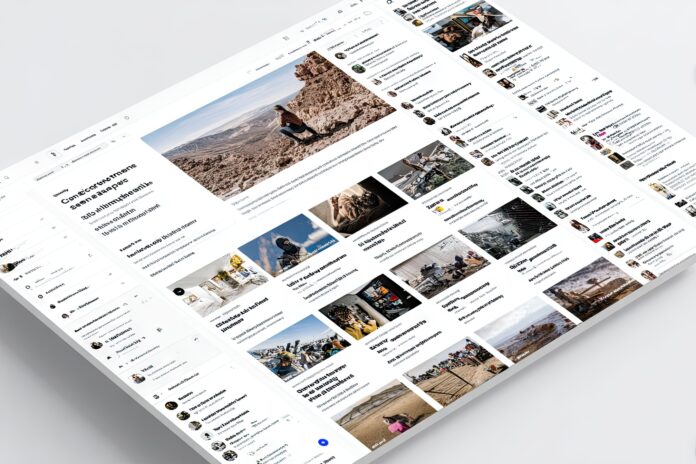How Digg is Crafting a Human-Centric Platform for the AI Age
Digg in the AI era is answering a question at the heart of today’s shifting digital landscape: How do you build a website that truly serves people when algorithms increasingly shape what we see online? As generative AI floods the web with automated content, Digg’s founders are doubling down on their original mission—empowering real users to decide which stories matter. They believe genuine human connection is the answer to information overload and digital fatigue.
The Origin Story: Why Human Curation Still Matters
More than a decade ago, Digg changed the way people discover news online. It put content curation directly into the hands of readers, who could upvote and discuss the latest stories. Because of Digg’s approach, users built a vibrant culture around elevating thoughtful reporting over clickbait. However, as the internet has evolved, so have the challenges. Automated bots, misinformation, and algorithm-driven feeds have muddied the landscape. Therefore, Digg’s founders are recommitting to something simple yet profound: platforms thrive when they trust their communities.
Hybrid Curation: Combining AI Efficiency with Human Wisdom
Artificial intelligence now touches nearly every corner of the media world. AI can surface trending topics at lightning speed and detect spam with remarkable accuracy. But most importantly, Digg believes these systems should support—not replace—community decision-making. They’re building a hybrid approach where AI assists in surfacing quality content, but it’s people who have the final say. For example, Digg’s new algorithms highlight social signals like voting patterns and engagement rather than relying solely on opaque machine learning. If suspicious activity appears, smart filters flag it for human review, ensuring both timeliness and trust.
Design Choices: Streamlined for Genuine Discovery
Besides that, Digg’s user interface reflects their human-first focus. In an era where social feeds can feel overwhelming, Digg presents a minimalist, ad-light environment that reduces distraction and highlights authenticity. Upvote and downvote buttons are prominent, encouraging active participation in surfacing the best news. Users also have more granular control over which topics fill their feeds, making the experience genuinely their own. The Digg team studies user feedback carefully, prioritizing clarity and accessibility in every feature update.
Tackling the Misinformation Challenge Head-On
One of Digg’s biggest goals is to provide a safeguard against the growing tide of AI-generated disinformation. The platform deploys a two-pronged moderation model: real-time keyword scanning powered by AI, combined with vigilant human moderators and community-driven reporting. When a story gets flagged, it is reviewed in context—never removed purely on AI’s recommendation. This layered strategy helps prevent echo chambers while elevating verified, reputable sources. Digg’s commitment to fighting misinformation builds trust among its users and sets a standard for other platforms to follow.
Transparency, Open Dialogue, and Community Trust
Trust is fundamental on Digg. To foster it, the founders have prioritized transparency at every step. Policies about moderation and community guidelines are clearly published, and major decisions are regularly discussed with the public. Open feedback channels, including regular town halls and community surveys, give users a direct voice. The system also rewards constructive behavior—top contributors gain reputation, while trolls and spammers face real consequences. These efforts create a digital environment where people feel safe and empowered to share insights or debate ideas.
Differentiating Digg in the AI Era
In today’s competitive landscape, standing out requires more than technical innovation; it demands a mission that resonates. Digg’s unique model relies on the wisdom of a diverse, engaged audience. While platforms like Reddit have wrestled with the implications of AI-driven moderation or automated post summaries, Digg’s founders are clear: algorithms work for humans, not the other way around. Readers become active participants—not passive consumers—in their news feeds, which leads to richer discussions and less manipulation by invisible algorithms.
The Road Ahead: Iterating for Human Impact
Building a site for humans in the AI era is a constant process of adaptation. Therefore, Digg’s founders remain committed to learning from their users. They regularly tweak AI filters, refine community guidelines, and hold open Q&As for direct feedback. The team measures success not just by traffic, but by quality engagement— conversation volume, upvotes on thoughtful comments, and positive user stories. This long-term view ensures Digg stays dynamic, responsive, and relevant as technology evolves.
Final Thoughts: A Vision for Digital Belonging
Ultimately, Digg’s experiment in the AI era underscores a powerful truth: technology should amplify human insight, not drown it out. By weaving together human curation, transparent moderation, and responsible AI support, Digg paves the way for a more trustworthy internet—one where digital communities foster knowledge and belonging. For more about their mission and ongoing innovations, explore Digg’s About page or follow live updates from the official Digg Twitter account. The future of online communities depends on platforms willing to put people first. Digg is leading that charge, showing how a blend of human wisdom and modern technology can shape a better digital tomorrow.



